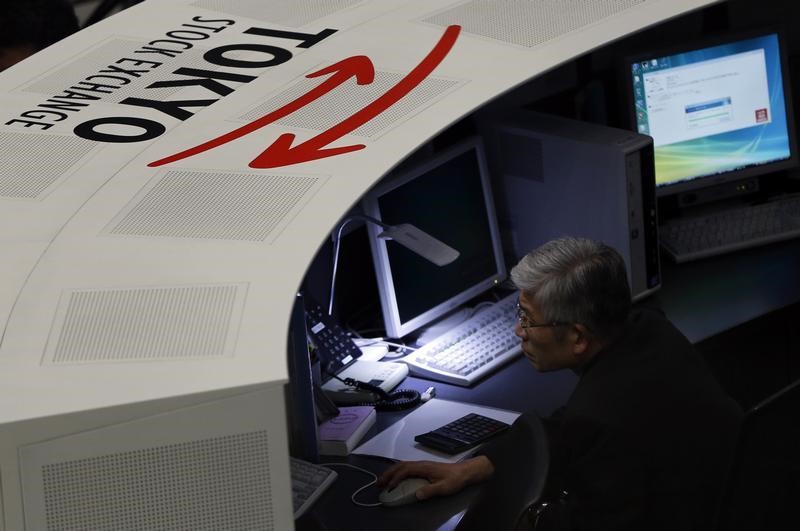Bank of America just raised its EUR/USD forecast
By Stanley White
TOKYO, Feb 16 (Reuters) - The Nikkei's rapid ascent to a
30-year high above the 30,000 mark has stunned many analysts,
but some traders say market hedging against call options at that
level is the likely reason for the market's gains.
Based on the size of outstanding call options and moves in
the Nikkei during previous episodes of active call option
trading, Japan's benchmark stock index .N225 could add another
1,000 to 2,000 points in coming weeks, some traders say.
Any further gains from current levels are likely to fan
already growing concerns about a bubble in Japanese stocks and
prompt more warnings of a sudden correction lower.
"The players who sold these call options thought the Nikkei
would not break 30,000, but now that it has, you could say they
are caught in a squeeze," said a trader.
"They have to hedge their losses in futures, but this only
helps to push up the cash market."
The Nikkei share average rose for a second straight session
on Tuesday to 30,714.52, the highest since August 1990, and has
shown no sign of slowing since breezing past 30,000 on Monday.
There are 13,059 Nikkei call option contracts outstanding
with a strike price at 30,000 and a notional value of 400
billion yen ($3.79 billion) that expire on March 12, Refinitiv
data shows.
The amount of calls at 30,000 dwarfs the amount of
outstanding index call options at strike prices above or below
that level, traders say.
The sellers of the call options have to hedge their
positions because the options are more likely to be exercised
when they expire, which is usually called delta hedging.
In this case, a common strategy in Japan is to buy Nikkei
index futures JNIc1 , which are up 4.3% since last week, but
this also tends to push the Nikkei higher.
"There were a lot of options and structured products tied to
30,000," one market analyst said.
"Touch that level once and the scramble is on, because
players have to buy futures to cover shorts. In the bigger
picture, I do worry that we are in a repeat of past bubble
markets."
Bank of Japan Governor Haruhiko Kuroda said on Tuesday the
recent stock price rally reflected market optimism over the
global economic outlook, brushing aside views its ultra-loose
monetary policy was fuelling an asset price bubble. ($1 = 105.6000 yen)
